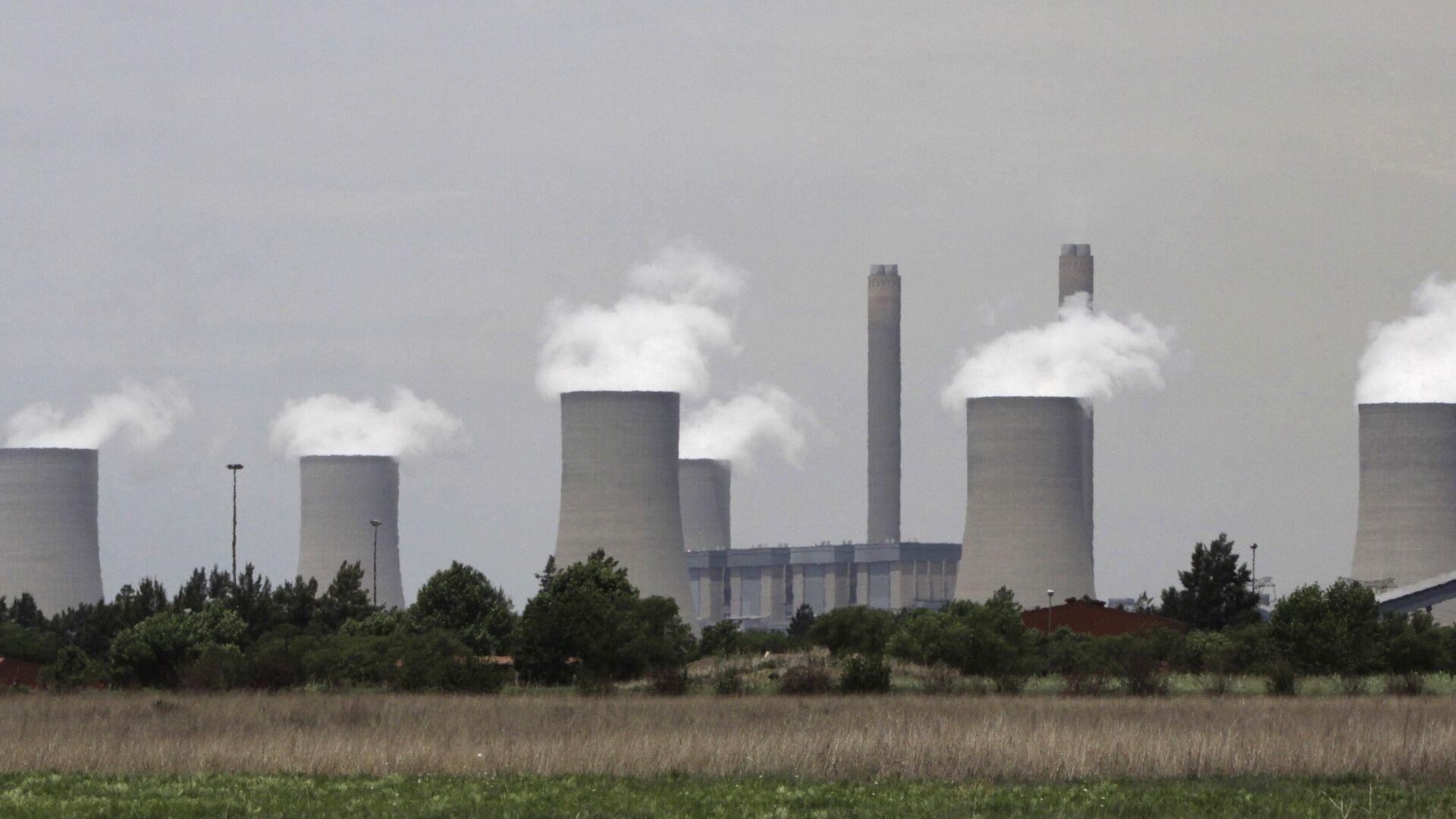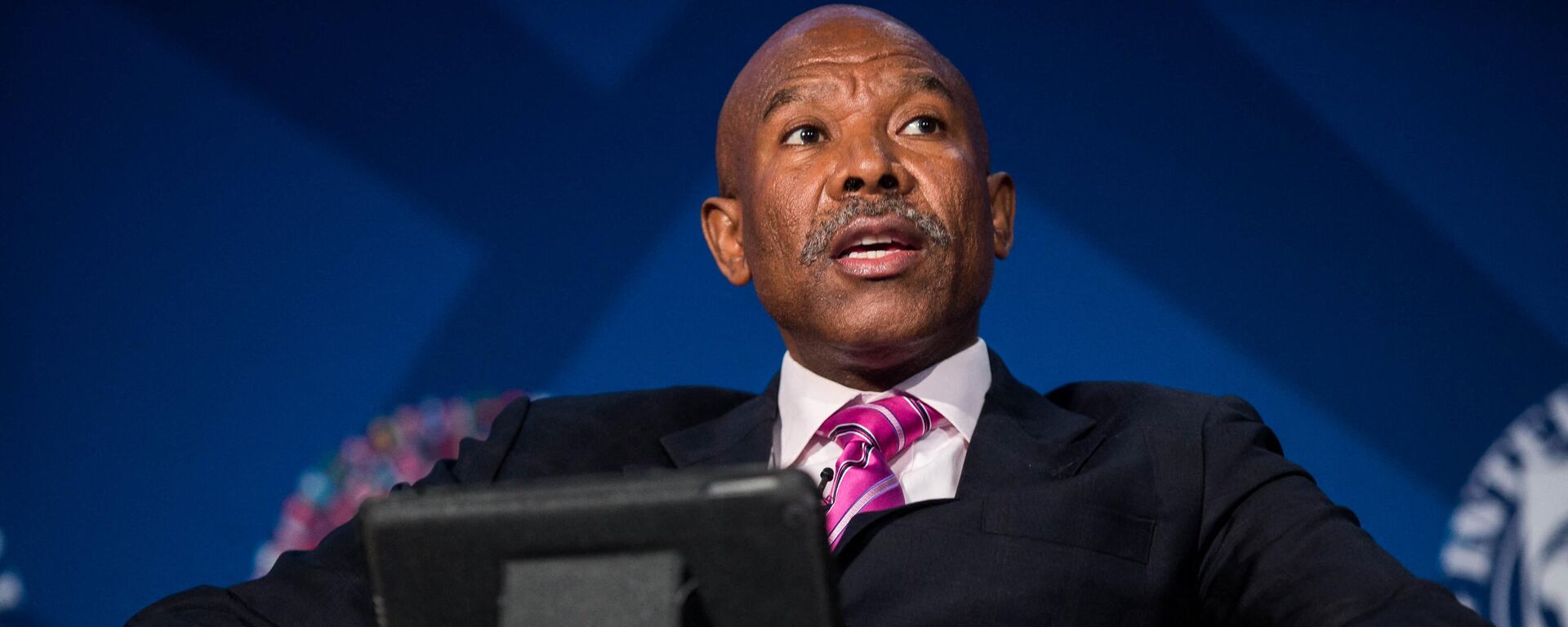https://en.sputniknews.africa/20230415/south-africas-finance-minister-rules-out-future-bailouts-of-eskom-amid-energy-crisis-1058617539.html
South Africa's Finance Minister Rules Out Future Bailouts of Eskom Amid Energy Crisis
South Africa's Finance Minister Rules Out Future Bailouts of Eskom Amid Energy Crisis
Sputnik Africa
The country's Finance Minister Enoch Godongwana stated that the government wouldn't provide any additional funding to indebted power utility Eskom.
2023-04-15T10:36+0200
2023-04-15T10:36+0200
2023-04-15T10:36+0200
sub-saharan africa
southern africa
south africa
eskom
energy
energy crisis
renewable energy
https://cdn1.img.sputniknews.africa/img/07e7/04/0b/1058500558_274:0:3824:1997_1920x0_80_0_0_56444de45e5d6a412229a55b16daeecd.jpg
The country's Finance Minister Enoch Godongwana stated that the government wouldn't provide any additional funding to indebted power utility Eskom, pointing to miscommunication between the state bodies' in their approach to resolving the energy crisis.The minister delivered his remarks on the sidelines of the International Monetary Fund’s Spring Meetings in Washington. He commented on the statements of the country's newly appointed Electricity Minister, Kgosientsho Ramokgopa, who earlier this week called for more financial support for the company. In February, the government announced a 254 billion-rand ($14 billion) debt-relief package for Eskom, taking on a major part of Eskom's 423Bln rand ($ 23Bln) debt over the next three years to enable the energy business to pay down its debt. At the same time, the National Treasury reassured its commitment to rein in the national debt and reduce the budget deficit. According to Godongwana, the government considered a wide range of options to resolve the crisis, including the development of renewable energy technologies, mobile gas, and the construction of nuclear plants. However, he underscored that in the current situation the best decision would be to maintain and modernize the existing coal-fired power plants. Godongwana also touched upon the topic of the country's increasing debt burden, noting that even though debt-service costs are rising, now accounting for about 20% of main budget revenue, he is "quite comfortable about managing those increases."South Africa is now facing a severe energy crisis, with Eskom imposing unprecedented nationwide blackouts, as it is unable to meet demand mainly due to its poorly maintained coal-fired plants. The company has survived on state bailouts since 2008, when it began to implement power outages, thus hindering South Africa's economic development, according to the country's officials.
https://en.sputniknews.africa/20230413/1058566360.html
southern africa
south africa
Sputnik Africa
feedback@sputniknews.com
+74956456601
MIA „Rossiya Segodnya“
2023
News
en_EN
Sputnik Africa
feedback@sputniknews.com
+74956456601
MIA „Rossiya Segodnya“
Sputnik Africa
feedback@sputniknews.com
+74956456601
MIA „Rossiya Segodnya“
southern africa, south africa, eskom, energy crisis, utility firm, coal-fired plants, power outages, nationwide blackouts
southern africa, south africa, eskom, energy crisis, utility firm, coal-fired plants, power outages, nationwide blackouts
South Africa's Finance Minister Rules Out Future Bailouts of Eskom Amid Energy Crisis
In February, South Africa’s National Treasury announced its plans to take on over 60% of the state-owned utility firm's debt in order to save it from defaulting on its obligations amid the escalating energy crisis and nationwide blackouts.
The country's Finance Minister Enoch Godongwana stated that the government wouldn't provide any additional funding to indebted power utility
Eskom, pointing to miscommunication between the state bodies' in their approach to resolving the energy crisis.
"From where I sit, the utility does not require any further cash injection," he underlined, adding: "What we've done allows them to accumulate sufficient cash flows to be able to run their operations efficiently, including improving maintenance."
The minister delivered his remarks on the sidelines of the International Monetary Fund’s Spring Meetings in Washington. He commented on the statements of the
country's newly appointed Electricity Minister, Kgosientsho Ramokgopa, who earlier this week called for more financial support for the company.
"I've not planned any borrowing to cover the sort of things he's talking about. He has not discussed those things with me," Godongwana is quoted as saying.
In February, the government announced a 254 billion-rand ($14 billion) debt-relief package for Eskom, taking on a major part of Eskom's 423Bln rand ($ 23Bln) debt over the next three years to enable the energy business to pay down its debt. At the same time, the National Treasury reassured its commitment to rein in the national debt and reduce the budget deficit.
According to Godongwana, the government considered a wide range of options to resolve the crisis, including the development of renewable energy technologies, mobile gas, and the construction of nuclear plants. However, he underscored that in the current situation the best decision would be to maintain and modernize the existing coal-fired power plants.
Godongwana also touched upon the topic of the country's increasing debt burden, noting that even though debt-service costs are rising, now accounting for about 20% of main budget revenue, he is "quite comfortable about managing those increases."
South Africa is now facing a severe energy crisis, with Eskom imposing unprecedented nationwide blackouts, as it is unable to meet demand mainly due to its poorly maintained coal-fired plants. The company has
survived on state bailouts since 2008, when it began to implement power outages, thus hindering South Africa's economic development, according to the country's officials.


